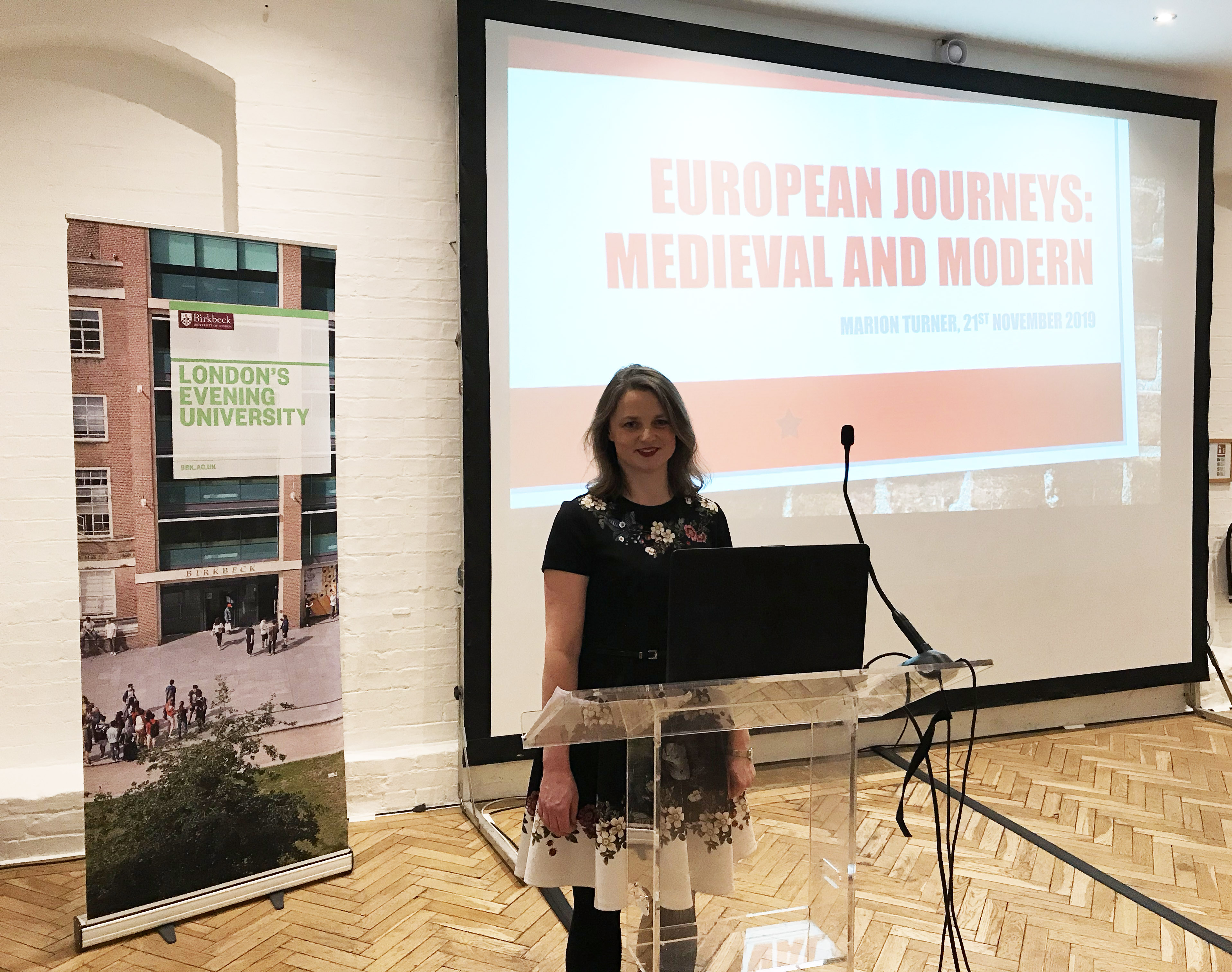Dr Marion Turner’s lecture on Chaucer’s writings and journeys reframed the quintessentially English writer as a great European poet and source of inspiration beyond the continent.
Dr Marion Turner took an audience of Chaucer enthusiasts on a journey through the poet’s works for the 2019 William Matthews Memorial Lecture. Following on from her own travels around Europe, where she contrasted the medieval with the contemporary, she demonstrated how Chaucer weaved his journeys through Europe into his works of poetry. Geoffrey Chaucer was an English poet and author, whose most famous works include The Canterbury Tales. He is often thought of as ‘the Father of English Literature.’
During her research, Dr Turner endeavoured to go on a physical journey through contemporary Europe in order to retrace Chaucer’s journey through Medieval Europe, to understand his interests, works and what gives the writer appeal beyond the borders of England.
Early on in the lecture, Dr Turner shared the impetus of her travels; being approached to write a biography of Chaucer’s life. She lamented that, upon sitting down to write the book, the plan she sketched was not very different from any other biography written about Chaucer. Frustrated, she set out on a walk to help her find ways of approaching the structure of the book, when she came to her ‘road to Damascus moment’; the idea to approach Chaucer’s work through his travels through Europe in the fourteenth century as a way of understanding the writer in the reader’s imagination.
Dr Turner reflected on numerous characterisations of Chaucer as an English poet firmly rooted in the English imagination and identity. She used the example of UKIP aligning Chaucer’s Wife of Bath’s Alisoun with the party during the 2013 election, thus painting her as an English archetype. But this trope is challenged by the numerous writers of colour, particularly women, who have taken Chaucer’s work and adapted it to create stories in their own contexts.
What’s more, through her travels she found that Chaucer’s stories came from distant places made up of diverse demographics. Particularly Navarre, located in the northern region of Spain, where Chaucer visited and saw members of the three main religions living harmoniously. She highlights that in the medieval period the most educated of the population were multilingual and that Chaucer himself would have been influenced by French, Italian and Latin poetry, which he enjoyed.
Chaucer’s travels through Europe also highlighted to Dr Turner the importance he places on perspective in his work, and it is this transition of perspective that characterises much of his poetry. She gives the example of the prominence of birds and someone who can only see from the ground as a way of demonstrating these different perspectives, which will inform an individual’s thinking on any given situation.
The lecture concluded with a reflection on Chaucer’s views of time and crossings, the place of crossing being “a place of magic, darkness and possibility” – an ongoing action in which the past infiltrates the present, much like the persistent influence of Chaucer’s works on writers across place and space within the literary canon.
The William Mathews memorial lecture is an annual lecture on either the English language or medieval English literature.
Further Information:





